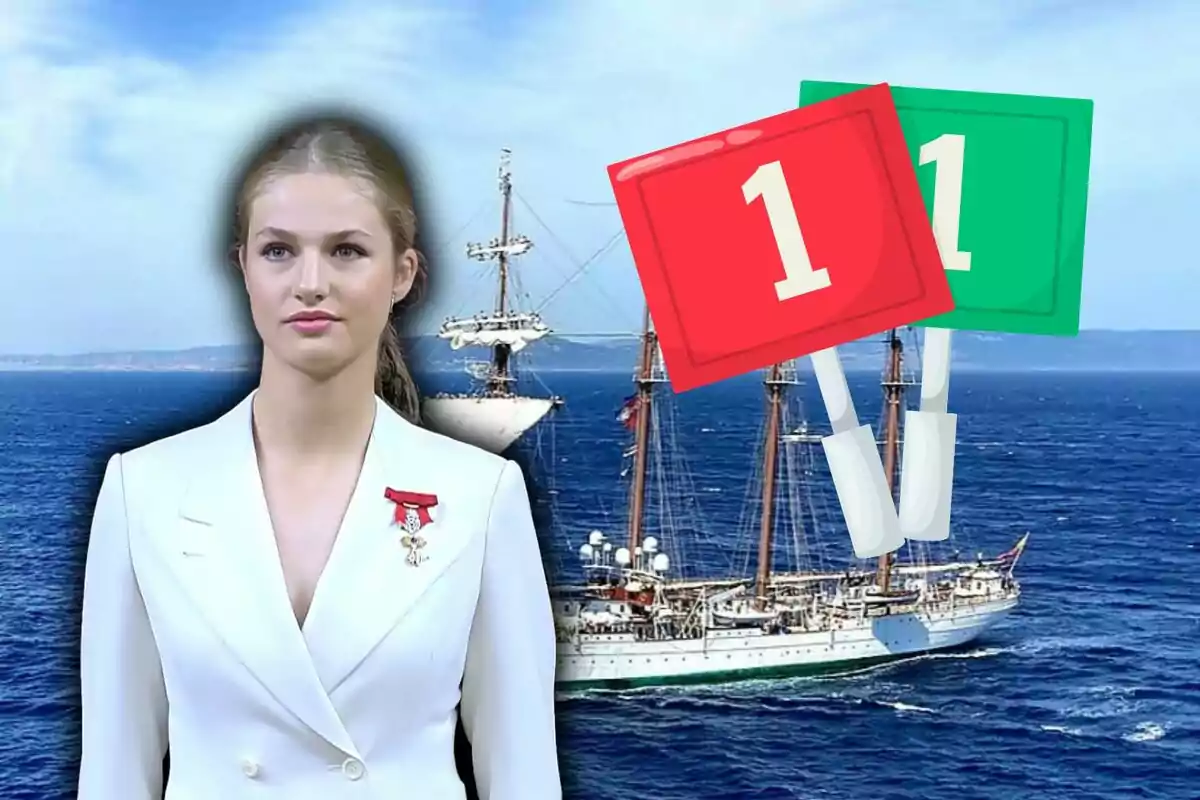The ceremony in Marín, which marked the end of Princess Leonor's naval stage, became the epicenter of an unexpected controversy. What began as a solemn event with emotional undertones soon started to generate tensions among her fellow cadets. They quickly expressed their discomfort, calling it "preferential treatment" and "unearned awards." In the halls of the Naval Academy, the rumor is spreading strongly: "She hasn't done anything," several candidates lament.
The awarding of the Grand Cross of Naval Merit in Marín
On July 16, 2025 (Virgen del Carmen), at the Naval Military School, King Felipe VI awarded his daughter the Grand Cross of Naval Merit with white insignia. This is a rank that complements others she has already received. These include the Grand Cross of Military Merit in Zaragoza and the gold medal of Galicia.
With this gesture, the princess was promoted to the rank of second midshipman, a level identical to that of her peers after six months of training on the training ship Juan Sebastián Elcano.

The event, presided over by Felipe VI and Queen Letizia, took place on the academy's parade ground in front of the training ship Elcano. Commander Pedro Cardona, in his speech, highlighted the high educational standards of the center and described the princess's presence as "a source of pride and a responsibility." However, outside the institutional stage, the reactions were quite different. Her peers didn't like this gesture at all and they don't agree with it.
Internal complaints: justice or favoritism?
Some of the candidates express what they consider a historic injustice. "She hasn't met the minimum requirements," they argue, recalling the warnings she received in previous training sessions due to her physical condition. In addition, the naval decoration represents the pinnacle in categories intended for military personnel for carrying out missions or distinguished services for the Navy.
Another controversy also unfolded in Marín's central square: local activists protested the royal presence. Galiza Nova and USO Galicia expressed their opposition with signs and gatherings, denouncing "monarchical privileges" and demanding better working conditions. However, Xunta and institutional representatives considered the event "a sign of institutional stability and commitment to the Navy."

In Germany, a human moment within the formality has drawn attention: the king helping to place the sash on his daughter while she held a sword. German media interpret that gesture as a reflection of a close family bond despite the solemn appearance.
What's next for the princess?
After completing her naval phase, Leonor faces a brief summer break before joining her final training period at the Air Academy, scheduled for late August. This will be her third and final military test, and it will mark the end of her journey as a cadet.
The truth is that institutional recognition and internal tensions have placed the princess at the center of a rare debate. The questions are clear now. Is the recognition of a young person legitimate, or should the awards model be reviewed to avoid creating inequality among those who supposedly share effort and sacrifice?

What is clear is that the outcome of this controversy could open conversations about the role of institutional inheritance in the military world. So the questions are clear. Will we see more voices speak out at future events?

